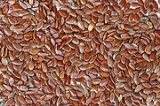
Seed
WordNet
noun
(1) The thick white fluid containing spermatozoa that is ejaculated by the male genital tract
(2) Anything that provides inspiration for later work
(3) One of the outstanding players in a tournament
(4) A mature fertilized plant ovule consisting of an embryo and its food source and having a protective coat or testa
(5) A small hard fruit
verb
(6) Remove the seeds from
"Seed grapes"
(7) Inoculate with microorganisms
(8) Sprinkle with silver iodide particles to disperse and cause rain
"Seed clouds"
(9) Distribute (players or teams) so that outstanding teams or players will not meet in the early rounds
(10) Place (seeds) in or on the ground for future growth
"She sowed sunflower seeds"
(11) Go to seed; shed seeds
"The dandelions went to seed"
(12) Bear seeds
(13) Help (an enterprise) in its early stages of development by providing seed money
WiktionaryText
Etymology
sǣd, sēd, from Germanic *sædh- ‘that which can be sown’. Cognate with Dutch zaad, German Saat, Swedish säd. Related to sow.
Adjective
- Held in reserve for future growth.
- seed money
- Don’t eat your seed corn
- First. The initial state, condition or position of a changing, growing or developing process; the ultimate precursor in a defined chain of precursors.
- What was the seed number that initiated the sequence of values?
- The qualifying match determines the seed position one will have in the final competition.
- A precursor, especially in a process without a defined initial state.
- What was the seed idea behind your scheme?
- Use your profits as seed money for your next venture.
Noun
- A fertilized grain, initially encased in a fruit, which may grow into a mature plant.
- If you plant a seed in the spring, you may have a pleasant surprise in the autumn.
- A fertilized ovule, containing an embryonic plant.
- An amount of fertilized grain that cannot be readily counted.
- The entire field was covered with geese eating the freshly sown seed.
- Semen.
- Sometimes a man may feel encouraged to spread his seed before he settles down to raise a family.
- A precursor.
- The seed of an idea. Which idea was the seed (idea)?
- The initial state, condition or position of a changing, growing or developing process; the ultimate precusor in a defined chain of precusors.
- The initial position of a competitor or team in a tournament. (seed position)
- The team with the best regular season record receives the top seed in the conference tournament.
- The competitor or team occupying a given seed. (seed position)
- The rookie was a surprising top seed.
- Initialization state of a pseudorandom number generator (PRNG). (seed number)
- If you use the same seed you will get exactly the same pattern of numbers.
- Commercial message in a creative format placed on relevant sites on the Internet. (seed idea or seed message)
- The latest seed has attracted a lot of users in our online community.
- The initial position of a competitor or team in a tournament. (seed position)
Usage notes
The common use of seed differs from the botanical use. The “seeds” of sunflowers and strawberries are botanically fruits.
Verb
- To plant or sow an area with seeds.
- I seeded my lawn with bluegrass.
- To start; to provide, assign or determine the initial resources for, position of, state of.
- A venture captialist seeds young companies.
- The tournament coordinator will seed the starting lineup with the best competitors from the qualifying round.
- This marketing company successfully seeds viral campaigns using media meshing.
- The programmer seeds fresh, uncorrupted data into the database before running unit tests.

